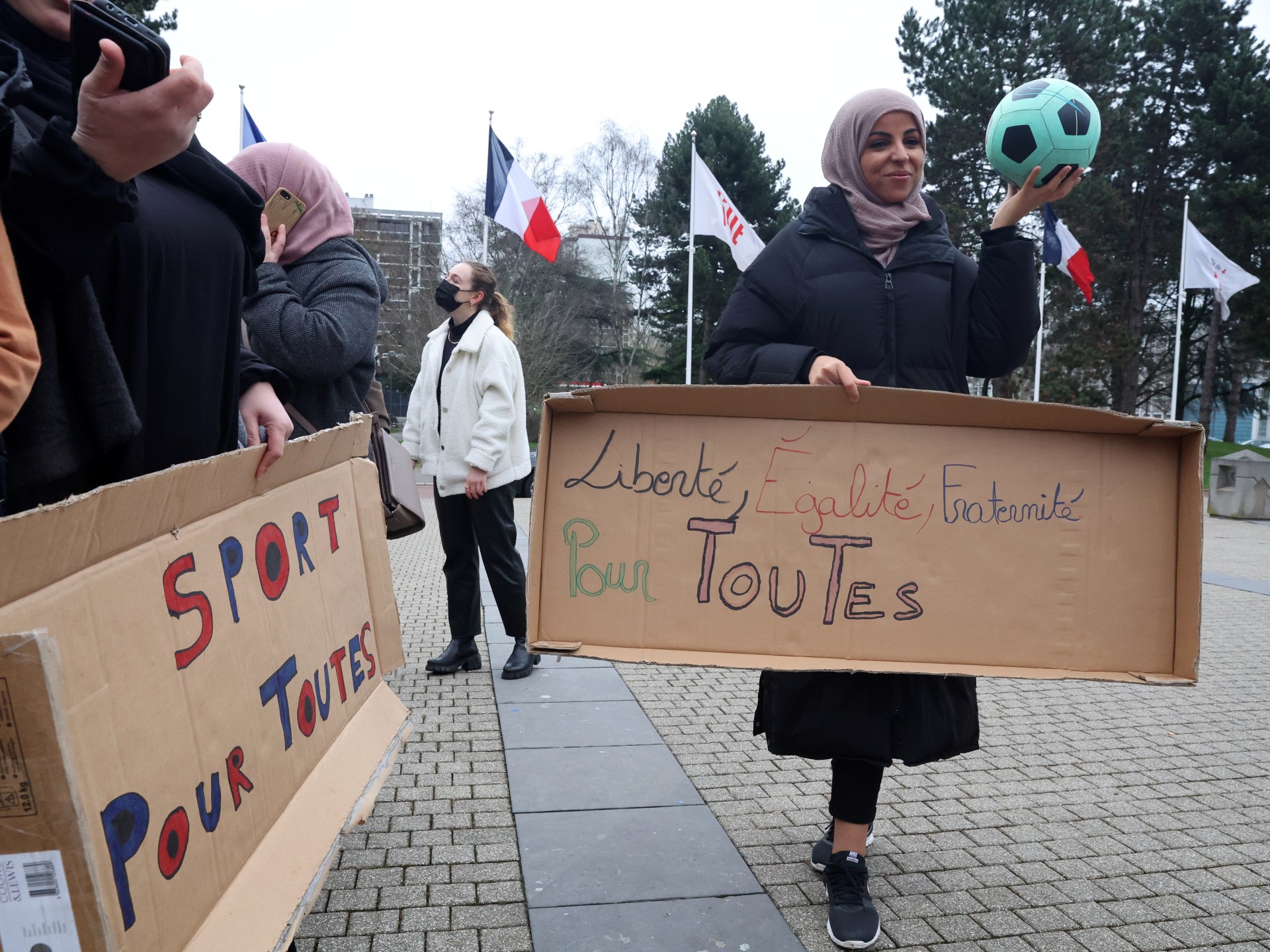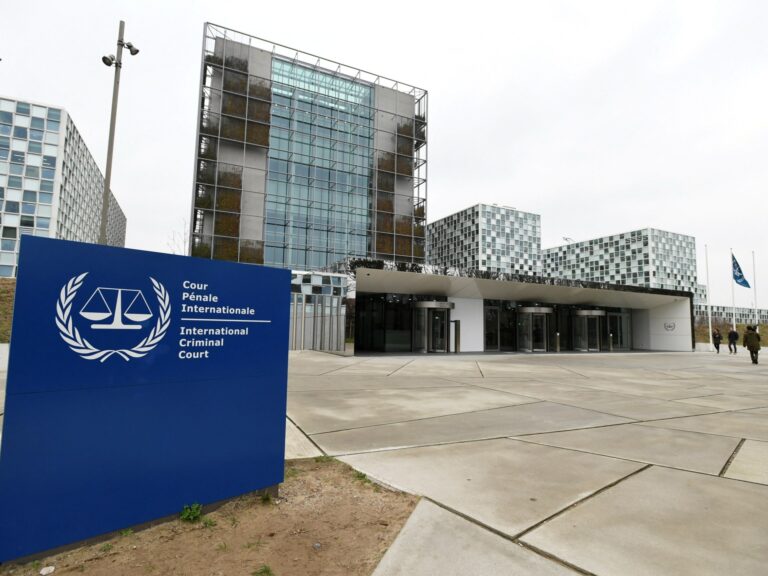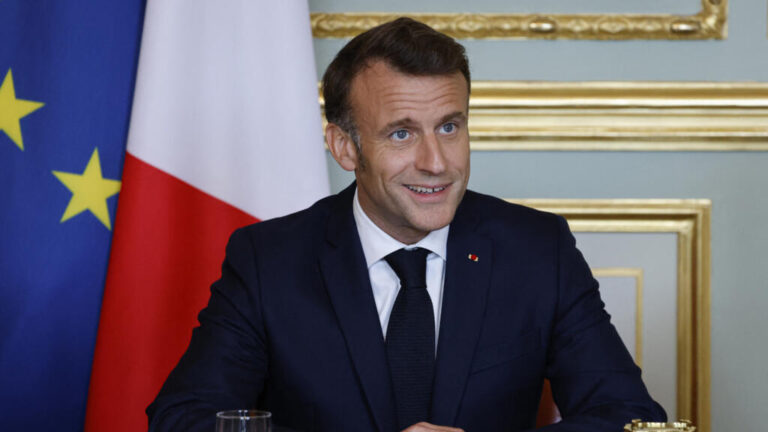In France, we must oppose hijab bans in all sports Islamophobia
Growing up, I had to avoid sports and I couldn’t play sports. I had eczema and any tension would cause a painful flare up.
But I decided to break this cycle at the university and enrolled in various sports classes. Starting with badminton and archery, I slowly found myself connecting more closely with my body, learning to listen to it and take care of it. Finally, I was brave enough to consider contact sports. I wanted to train in English boxing, but when I tried to sign up for it, the coach rejected me. Reason: my turban.
I never got into the ring, but I was drawn into the fight anyway: the fight for my rights as a woman and as a Muslim, to be recognized as a full human being and to be free from discrimination.
I wear a turban for reasons that are nobody’s business but mine. Turbans and headgear such as “chadra” or “hijab” have always been part of my sportswear and fully comply with hygiene and safety regulations.
I thought that playing another sport would solve the problem, but it didn’t. I joined the volleyball association and applied to participate in amateur competitions. But shortly after filling out the forms, the coach pulled me aside and told me that the referee told him that I would be allowed to practice, but that I would not be able to join the team or participate in games according to the regulations of the French Volleyball Federation (FFVB).
The justification given to me is a lie. The FFVB’s decision banning the wearing of “religious symbols”, including the hijab, did not come into effect until September of this year, after I applied to compete in amateur competitions.
“Laicism” or “secularism”, which is in theory enshrined in the French constitution to protect everyone’s religious freedom, is often used as an excuse to prevent Muslim women from entering public spaces in France. Over the years, French authorities have enacted laws and policies to regulate the dress of Muslim women and girls. Sports federations have followed suit, banning headscarves in a number of sports, including football, basketball and volleyball, at both the professional and amateur levels.
Rooted in prejudice, racism, and gendered Islamophobia, such rules protect Muslim women’s choices and bodies. We are not allowed to dress in a way that we feel comfortable in schools, beaches, swimming pools and other public places.
I know from personal experience how devastating these exclusionary and discriminatory prohibitions can be. They can create a deep sense of humiliation and trauma, and can result in women and girls giving up sports or other activities they love, face harmful discrimination and have devastating effects on their mental and physical health.
As a result of the hijab ban, I had to take a break from volleyball. I felt like a deeply rejected, soulless, heartless, disenfranchised being. For me, sport is a very intimate physical activity and is very closely related to my physical and mental health. I miss you every day.
Over the summer, the hypocrisy of France’s hijab ban caught the world’s attention during the Paris Olympics. France’s ban on hijab-wearing female athletes from competing in the Olympics has exposed the racist gender discrimination that underpins access to sport in France. It brought such unfair rules under greater public scrutiny.
Amnesty International report The article, published before the Olympics, made it clear that under international law, “secularism” is not a legitimate reason to impose restrictions on the rights to freedom of expression and religion or belief.
France’s ban on religious sports headgear is contrary to the dress codes of international sports bodies such as FIFA (Fédération Internationale de Football Associations), FIBA (Fédération Internationale de Basketball) and FIVB (Fédération Internationale de Volleyball). In its study, Amnesty International looked at regulations in 38 European countries and found that France is the only country that bans religious headdresses.
In October, United Nations experts condemned the bans as “disproportionate and discriminatory” and called for their repeal. a statement Presented to the UN Human Rights Council, the UN special rapporteur on cultural rights said the bans violate the rights of Muslim women and girls in France to “express and participate freely in private and public spaces of their identity, religion or belief. in cultural life”. The UN experts unequivocally called on France to “take all measures in its power to protect (Muslim women and girls), protect their rights, promote equality and mutual respect for cultural diversity”.
Despite such calls and growing national and international protests, two bills have been introduced in the French parliament in the past year to ban the hijab in all sports.
I, along with many others, will oppose these misguided proposals and continue our fight to remove the existing bans.
I remain hopeful. I strongly believe that we can come together to defend our rights. Organizations such as Amnesty International, Collective Against Islamophobia in Europe and LalabThe feminist and anti-racist association I am a member of should be listened to and supported in the fight against gender Islamophobia.
I also want to acknowledge collectives working on inclusion in sports such as Hijabeuses, Sport Pour Toutes and Basket Pour Toutes and thank them from the bottom of my heart for their courage and bravery. This is not a political or religious fight, but a fight based on our human right to participate in sport. As we are affected by the violence and oppression we suffer, we create spaces of struggle, care and solidarity together to fight this blatant discrimination.
The author’s last name has not been published due to concerns about her privacy and security.
The views expressed in this article are those of the author and do not reflect the editorial position of Al Jazeera.








